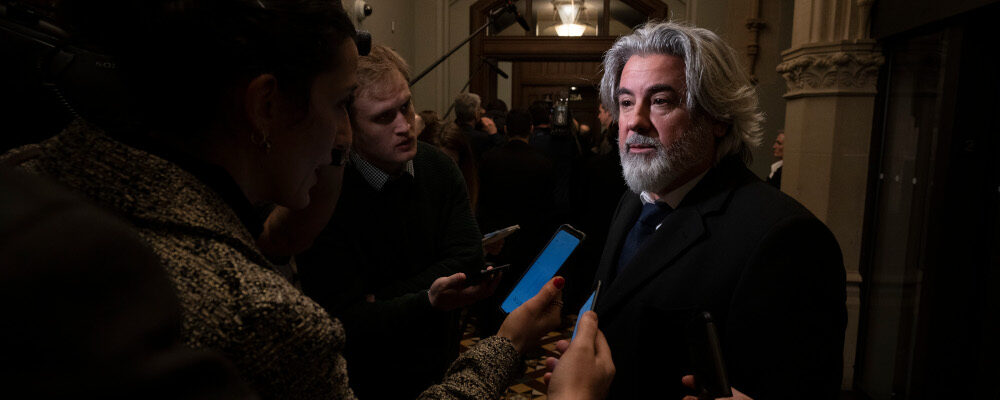Last week’s announcement by Canadian Heritage Minister Pablo Rodriguez that the government intends to reject several good-faith amendments to Bill C-11 passed by the Senate has created a growing sense of defeatism on the part of Canadian online creators. The bill, which proposes to extend Canadian content rules (known as the “CanCon” regime) to web-based content, is now on a path to eventual parliamentary passage.
If that ultimately occurs, the bill’s consequences will take some time to manifest themselves but there’s good reason to think that it will damage the economic livelihoods of online creators, narrow the range of available Canadian content, and harm the interests of Canadian consumers.
As a refresher for Hub readers, the CanCon regime involves a combination of mandates, quotas, and financial obligations for traditional Canadian broadcasters in the name of promoting and supporting Canadian radio and television content. The regime, which finds its origins in an era of airwave scarcity and heightened cultural nationalism in the 1960s, is overseen by the boringly-named yet highly-powerful Canadian Radio-Television and Communications Commission (CRTC).
Up until now, the internet has, by and large, been outside the purview of the CRTC. That’s because in the late 1990s the Chretien government made the enlightened decision to exclude it from regulation on the grounds that the internet had the potential for positive-sum effects on the production and consumption of Canadian content. Now nearly a quarter century later, the current Liberal government proposes to undo its predecessor’s decision and extend the CRTC’s reach to the world of online content.
The most charitable explanation for the government’s insistence in light of considerable opposition (including from a large number of individual online creators) is that the regulatory status quo creates an unsustainable asymmetry between traditional broadcasters who are subjected to a set of government edicts and online-based platforms and content producers who are not. If that was the principal reason behind the government’s thinking, however, the simple and obvious solution would be to solve the asymmetry by deregulating traditional broadcasters rather than trying to regulate Netflix or YouTube.
The government’s fiercest critics have argued that the real motivation is to regulate the internet. According to this line of argument, it’s less about the technocratic modernization of pre-internet regulation for the digital world and more about an appetite for censorship of ideas and voices that don’t conform to the government’s own ill-defined conception of satisfactory Canadian content.
I’ve been reluctant to take that leap throughout the process. My commentary has tended to focus on resolving the real yet solvable challenge of a two-tier broadcasting policy which is a legitimate public policy problem. But as we get closer to the finish line, the government’s dogmatism cannot help but make one a bit suspicious that there’s more going on here than merely achieving equal treatment between CTV and YouTube or Rogers and Netflix.
The government’s mixed messages on user-generated content—including its opposition to a narrowly-designed Senate amendment on the subject—have particularly fed this perception. As University of Ottawa law professor Michael Geist recently wrote: “In doing so, he [Rodriguez] has left no doubt about the government’s true intent with Bill C-11: retain power and flexibility to regulate user content.”
Yet some have speculated that neither explanation is at the heart of the government’s obstinance. What’s instead driving the minister and the government is run-of-the-mill pandering and an overfocus on the policy preferences of Quebec’s arts and cultural community for straightforward political reasons.
That may be plausible but even if it’s true, it still reflects the more general problem with the government’s thinking on the subject: it underestimates the ability of Canadian content producers to compete and succeed in an increasingly global market.

As I’ve previously written for The Hub, the nearly 25-year-old experiment with a mostly unregulated internet was a powerful case study in this regard. It has overwhelmingly proven that so much of the defensive and parochial thinking that underpins the CanCon regime is unjustified. Our content creators don’t need mandates or quotas to survive. They need the freedom to succeed (or fail) in a global marketplace in which their artistic and creative expression can reach global audiences.
Why would we abandon such a tremendous opportunity? How is that good for Canadian content or its promotion to Canadians and the world? And in what world is the CRTC a better judge of what Canadian content is worthy of support than millions of individual consumers?
I can usually empathize with government policymakers even when I disagree with their decisions. Bill C-11 is an exception. Whatever the Trudeau government’s motivation, it’s a case of bad policy that overestimates the role of government and underestimates the efficiency of a decentralized market.
Yet it seems inevitable now that the government will ultimately get the legal authorities necessary to move in this ill-conceived direction. If there’s one silver lining, however, it’s likely that we’ll have a federal election before the new policy is fully implemented and firmly entrenched. There will be an opportunity therefore for a subsequent government to reverse it without much disruption.
That’s precisely what Pierre Poilievre and the Conservatives should do. But it won’t be enough to merely repeal Bill C-11 which they manifestly should do. They should also bring an end to the CanCon regime more generally and revisit the mandate of the CRTC itself.
A logical extension of ending CanCon in the internet age would be to put the CRTC’s own existence into doubt. It ought to be one of the first cases of Poilievre getting rid of gatekeepers and opening the gates.




